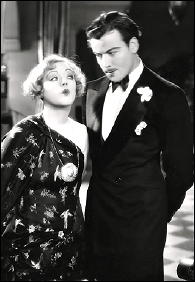TOP O’ THE MORNING. Paramount Pictures, 1949. Bing Crosby, Ann Blyth, Barry Fitzgerald, Hume Cronyn, John McIntyre. Screenplay: Edmond Beloin & Richard L. Breen; director: David Miller.
Trivia experts likely know that William Levinson and Richard Link created the character of Lt. Columbo for Bing Crosby, but they may not realize Bing had played a detective before, and in fact a private detective in this 1949 musical comedy with a touch of noir.

Music and murder had mixed before — Charlie Chan at the Opera, Murder at the Vanities, The Princess Comes Across, and Lady of Burlesque come to mind, but those were backstage mysteries, and the singing was confined to the stage. This may be the only full blown musical comedy murder mystery ever filmed.
It begins with a murder and a shocking theft — the Blarney Stone — which bequeaths the gift of gab on anyone who kisses it — has been stolen. The stone is part of ancient Irish lore and it’s theft could well visit disaster on the entire nation. Finding the stolen stone and restoring it and the killer is of vital importance.
Enter top American insurance investigator Joe Mulqueen (Bing Crosby), a laid back pipe-smoking crooning detective, sent by Inspector Fallon (John McIntyre) to Ireland find the ancient rock and save the company from having to pay off on the priceless relic.
But that pits Joe against Sergeant Briany MacNaughton of the Irish Garda Civil, and his fiery daughter Conn (Ann Blyth), and further complications ensue because Joe’s arrival seems to fit all too well a prophecy about who the lovely Conn will marry.
Top o’ the Morning is by its nature schizophrenic. When Bing isn’t crooning familiar tunes or those written for the film by Burke and Van Heusen, romancing the lovely Blyth, doing the usual Irish shtick with Fitzgerald and most of the cast, and exploring the legend of the Blarney Stone, he’s playing detective investigating a brutal murder.

Toward the end of the film the mood turns dark and even noirish, and the screenplay acknowledges a nod toward G. K. Chesterton and one of Father Brown’s most famous cases, “The Invisible Man,” as Joe and Sgt. MacNaughton close in on the killer.
Indeed these scenes almost make you wish the film had been played as a straight detective story, and they have a quiet power as well as a dark noirish look, thanks to Miller’s direction.
Top o’ the Morning is more of a curiosity than a success. You can’t fault the cast or even the screenplay; the two forms just don’t really work that well together.
Bing does get to show a little steel beneath the crooning in a few scenes, and he’s always worth watching playing off Fitzgerald. Fitzgerald, who played almost as many cops and professional Irishmen, gets to exercise both his specialties here, and Blyth is both lovely and convincing. A special nod to Hume Cronyn as Biddy O’Devlin, who gets to shine briefly in an offbeat film.
Still Top o’ the Morning is well worth catching, and noir fans will recognize some excellent work toward the end of the film. It’s one of those films that you may find you like far more than it really merits.











